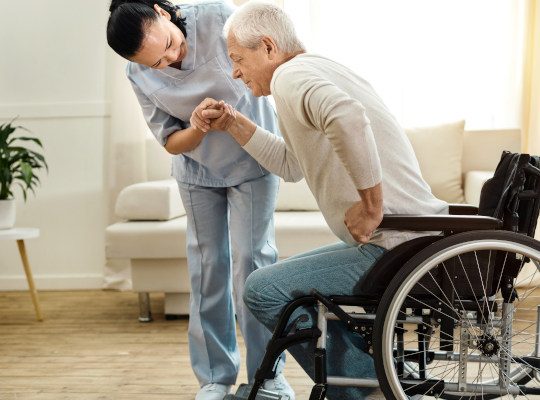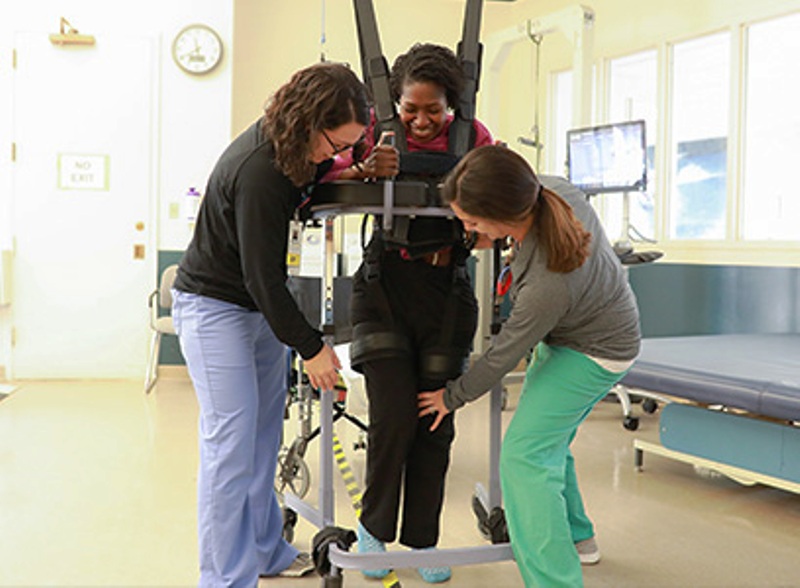In today’s digital age, technology plays a pivotal role in transforming the lives of individuals with disabilities. For adults with physical, sensory, or cognitive impairments, adaptive technologies offer a new horizon of possibilities. These innovative solutions bridge the gap between ability and disability, empowering individuals to lead more independent and fulfilling lives. In this blog, we will explore some of the remarkable adaptive technologies designed specifically for adults with disabilities and how they are revolutionizing accessibility, communication, mobility, and overall quality of life.
Accessible Communication Devices: Breaking Barriers
For individuals with speech or communication challenges, accessible communication devices have been revolutionary. Augmentative and Alternative Communication (AAC) devices use various methods, such as symbol-based communication or text-to-speech technology, to help users express themselves effectively. These devices allow adults with disabilities to engage in social interactions, express their thoughts, and participate actively in both personal and professional settings. AAC apps on smartphones and dedicated communication devices offer customizable interfaces tailored to individual needs, making communication accessible and inclusive for all.
Mobility Aids: Freedom to Explore
Mobility impairments can significantly limit an adult’s ability to move around independently. Adaptive technologies like wheelchairs, mobility scooters, and exoskeletons have provided newfound freedom to explore the world. Powered wheelchairs equipped with advanced controls and navigation systems enable users to navigate various terrains with ease. For those with limited upper body mobility, exoskeletons offer wearable support, enhancing mobility and promoting physical activity. These technologies not only facilitate movement but also foster confidence and a sense of independence.
Assistive Apps and Software: Enhancing Productivity
In the professional realm, adaptive technologies have enabled adults with disabilities to thrive in their careers. Assistive apps and software are designed to cater to various disabilities, making it easier for individuals to manage tasks, organize schedules, and improve productivity. Screen readers, speech recognition software, and specialized keyboard interfaces empower those with visual or motor impairments to navigate computers effortlessly. With these tools, adults with disabilities can actively contribute to the workforce and achieve their career goals.
Smart Home Solutions: An Inclusive Living Environment
Smart home technologies have revolutionized the concept of independent living for adults with disabilities. From voice-activated assistants to home automation systems, these adaptive solutions make daily tasks more accessible. Voice commands enable users to control lights, thermostats, and appliances, reducing the need for manual interaction. Smart sensors can detect movement and anticipate needs, providing increased safety and convenience. By transforming traditional homes into inclusive living environments, smart technologies enable adults with disabilities to live more comfortably and securely.
Sensory Aids: Opening New Dimensions
For adults with sensory impairments, adaptive technologies offer a means to experience the world in novel ways. Hearing aids with advanced sound processing capabilities allow individuals with hearing loss to engage in conversations and appreciate music. Visual aids and screen magnifiers assist those with low vision, enhancing their ability to read, view images, and access digital content. Assistive technologies that convert visual information into tactile or auditory signals provide a broader range of experiences, fostering a deeper connection with the environment.
Virtual Reality for Rehabilitation: Rebuilding Lives
Virtual Reality (VR) has emerged as a powerful tool in the rehabilitation process for adults with disabilities. VR applications offer immersive experiences that aid in physical therapy, cognitive training, and emotional well-being. Through VR simulations, individuals can practice real-life scenarios, enhancing their motor skills and building confidence. Additionally, VR environments can help individuals overcome phobias, manage stress, and improve mental health, promoting overall rehabilitation and recovery.
Adaptive technologies have ushered in a new era of possibilities for adults with disabilities, transcending barriers and empowering independence. From accessible communication devices and mobility aids to assistive apps, smart home solutions, sensory aids, and virtual reality rehabilitation, these innovative technologies have revolutionized the lives of millions. As we continue to advance technologically, let us remain committed to creating inclusive solutions that enable all individuals, regardless of ability, to participate fully in society and unlock their full potential. Only then can we achieve a truly inclusive and accessible world for everyone.







